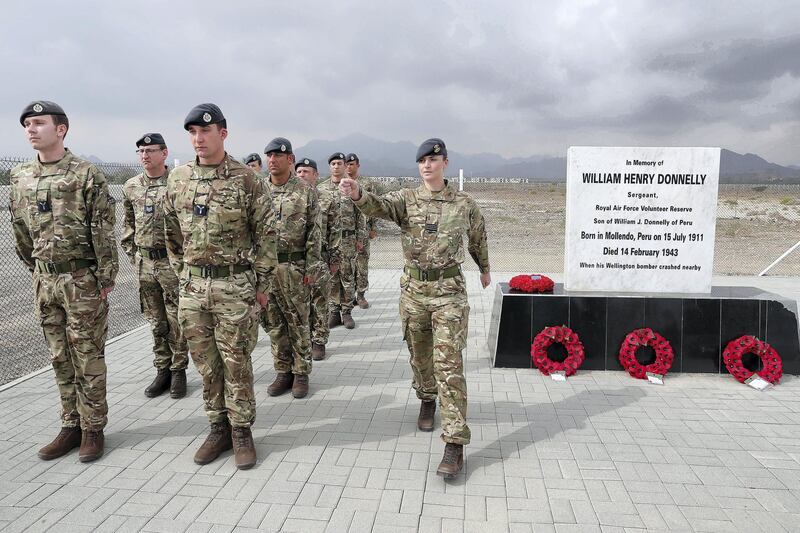Over the past few years, we've become accustomed to the UAE getting attention on the world stage. That may come as a result of our engagement with key global players, like the recent visit by India's Narendra Modi, or because of our humanitarian aid programme or because of our achievements in fields such as renewable energy. Sometimes, it's because of something that's sufficiently unusual to attract notice, like the visit a few days ago by the UAE women's ice-hockey team to the USA and Canada.
All demonstrate that we’re very much part of the broader world.
That’s always been the case, of course. The results of archaeological excavations show that, uncovering evidence of our engagement within the region and beyond.
It’s not so easy, though, looking back at major events or developments elsewhere to identify how they relate to the UAE. History often seems to have passed us by. Yet, if we are to understand where the UAE can be placed in terms of human history, it’s necessary to learn about those links. Looking at the work of the great painters of the European Renaissance, it may be difficult to see a UAE connection – yet the pearls worn by the men and women in some of those paintings came from the Gulf. In the Renaissance, the UAE too played its part. It would be good to know more.
I was reminded last week of the need to place UAE history firmly within the context of global events when I attended a service of remembrance in the Fujairah village of Sayh Dhadnah for a British airman, William "Billy" Donnelly, who had died there 75 years ago when his plane crashed during the Second World War.
_______________
Read more from Peter Hellyer
[ Protect our endangered reef sharks from the illegal fishing trade ]
[ Year of Zayed: we still have much to learn about the Father of the Nation's achievements ]
_______________
At a superficial level, that war appears to have little connection to the Emirates. There were no great battles here, no armies clashing on our soil, as there were in East Asia, North Africa and Europe. Yet it was, indeed, a global conflict. We were not immune to its impact.
Located between the Mediterranean and India, the UAE was on a major air supply route used by British and US air forces. Others died besides Billy Donnelly, including two other British airmen and a soldier who died in the same month of February 1943, when their plane crashed near Dhaid, and the three-man crew of a US Army Air Force plane that crashed inland from Dubai in July 1945.
Lying in deep water off the coast of Fujairah is the wreck of a German submarine, sunk in October 1943 by a British bomber flying from Sharjah. It is now a grave for over 50 German sailors. An Italian submarine, sunk in 1940 by the British Royal Navy with the loss of 26 lives, lies near the Straits of Hormuz.
One Emirati, at least, is known to have died too, once again in February 1943, when he succumbed to injuries inflicted when he strayed, unwittingly, into an area being used for bombing practice.
The UAE was also affected in other ways by the Second World War. German, Italian and Japanese submarine activity in the Indian Ocean interrupted commercial traffic between the Gulf and India, causing food shortages. Prices of foods like rice soared, with rationing being introduced. Combined with the impact of a drought in which much livestock perished and, in one year, a plague of locusts, this led to severe hardships.
Such events may have been largely peripheral to the conflict as a whole, but they are evidence of the way in which the UAE has not been isolated from, or unaffected by, developments elsewhere.
Today, of course, the UAE is an active participant in global affairs, playing an increasingly significant role. As we do that, it’s important to remember that much of our history shows that, even if in a minor way, we have not just been irrelevant, uninvolved bystanders.





